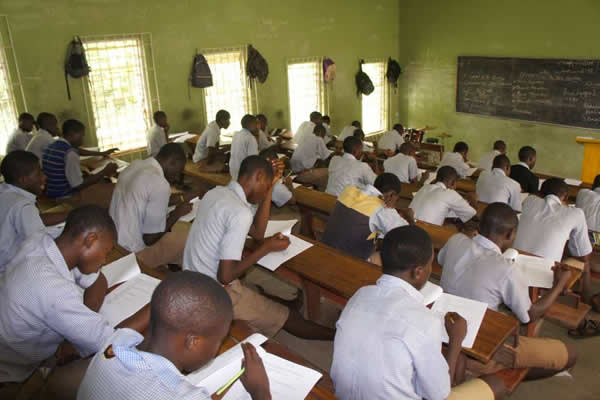EDUCATION: FG Unveils Approved Curriculum, Warns Against Fake Subject Lists

EDUCATION: FG Unveils Approved Curriculum, Warns Against Fake Subject Lists
The Federal Government has released the authentic and approved subject offerings for Nigeria’s newly revised Basic and Senior Secondary Education Curriculum, cautioning schools, parents, and other stakeholders against fake versions currently in circulation.
In a press release issued on Monday, the Nigerian Educational Research and Development Council (NERDC) appealed for vigilance.
“We fervently call on all critical stakeholders to disregard any other fake and unauthentic list that is at variance with the authentic and approved list provided above,” the Council stated.
The reforms, spearheaded by the Federal Ministry of Education (FME) under its National Education Sector Reform Initiatives (NESRI), are aimed at reducing curriculum overload and ensuring what the NERDC described as “positive learning outcomes” for pupils nationwide.
Signed by the Executive Secretary of NERDC, Professor Salisu Shehu, on September 8, 2025, the notice confirmed that implementation will begin at the entry point of each three-year cycle—Primary 1, Primary 4, JSS1, and SS1.
The NERDC further announced that awareness campaigns and training sessions would begin immediately.
“Nationwide sensitization and teacher capacity building have been slated to commence immediately for effective implementation,” the Council declared.
According to the Council, the revised curriculum marks a “new phase” in Nigeria’s education sector, embedding relevance, flexibility, and skill acquisition into the learning process from the earliest stages.
Subject Breakdown
Primary 1–3: Pupils will offer a minimum of 9 and a maximum of 10 subjects, including English, mathematics, a Nigerian language, basic science, physical & health education, religious studies, history, social & citizenship studies, and cultural & creative arts. Arabic is optional.
Primary 4–6: Between 11 and 13 subjects, with the addition of Basic Science & Technology, Pre-vocational Studies, and Basic Digital Literacy. French and Arabic remain optional.
Junior Secondary School (JSS 1–3): A minimum of 12 and a maximum of 14 subjects, including English, mathematics, intermediate science, digital technologies, social & citizenship studies, history, and a choice of trade subjects such as solar installation, fashion design, livestock farming, or computer repairs.
Senior Secondary School (SSS 1–3): Five compulsory core subjects—English, Mathematics, Digital Technologies, Citizenship & Heritage Studies, and one trade subject. Students will also select from science, humanities, and business streams, with options in biology, physics, government, literature, accounting, economics, and more.
The Federal Government had earlier, on September 1, announced the completion of the curriculum review for basic, secondary, and technical education, describing it as a move to make Nigerian learners “future-ready.”
However, some teachers and parents criticized the rollout, arguing that they were not consulted and warning that schools lacked the infrastructure and training needed for immediate implementation.
Despite these concerns, the FG has insisted that the new curriculum will take effect from the 2025/2026 academic session across the country






